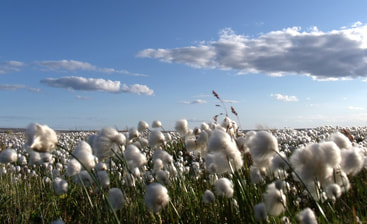Pond Inlet, Nunavut

Year(s) Funded: 2014-2015, 2015-2016
Topic Area: Water Quality Contact: Tim Anaviapik Soucie, Community of Pond Inlet ([email protected]) Partners: Community of Pond Inlet, Qikiktani Inuit Association, Nunavut Research Institute, Pond Inlet Department of Environment, Pond Inlet Department of Health, Dalhousie University Centre for Water Resources, ARCTIConnexion Website: http://www.pondinlet.ca Title:
Action: Under the dire and real influence of recent climate change, local people have expressed a common concern that water quality may not be the same as it used to be from observed changes in the water colour and the difference of taste of water during the summer. We fear that it is actually already affecting our people since many of us have complained about stomach problems during summer and the pressing issue of illness, potentially due to uncleanliness of water. Project leads were encouraged by community members, especially elders, to address the quality of the freshwater water in the community and the surrounding environment. This resulted in a pilot project in 2014 entitled “Building capacity to monitor fresh water in Pond Inlet: community needs assessment in a changing climate”. The project aimed at developing the essential research skills and collect baseline data and local observations to understand the state of community fresh water and see whether or not it poses a risk to people’s health to better inform the community and develop best practices. The research was most interested in exploring the interrelated topic of water use, water quality, stomach illness and climate change. In 2015, the project expanded the community-based research to develop more capacity and collect more data and local observations in the interrelated field of climate change, water quality, and health, with the overarching goal to design a Community Adaptation Plan to mitigate the risks associated with the consumption of water in a climate change context. Results: A survey was conducted with Mittimatalirmiut to document people’s water use patterns, preferences, experience of stomach illness and observations on changes in water quality. A sampling and classification protocol for the examination of benthic invertebrates as indicators of water quality was developed. Phase II included designing curriculum for a course for Inuit learners at the local high school and included water sampling for microbiological contamination. Project leads visited and trained 7 youth for water quality monitoring in the community of Arviat, Nunavut during the summer of 2015. A water quality pilot research was initiated in Arviat as a result of this initiative. The team has also documented, for the first time in Nunavut, the observations and knowledge of our Elders on the topic of fresh water, its cultural relevance and its different uses in the past and historical changes in its quality in relation to pollution and global warming. According to these findings, the community has been able to localize the traditional sources of water on the land, to understand the major changes that took place in the environment and to identify the principal manifestations of climate change that have the potential to affect water quality: earlier melting of snow and glacier, heavier rain, warmer temperature. Importantly, Pond Inlet Elders have pointed out the need to find a new location for the municipal water source (Water Lake) since this location was never the first choice of the community at the time of the settlement in the 1970’s. Proposition has been made for a new site with deeper, fresher and flowing water and information has been mapped. The feasibility of this idea will require a comparative investigation on the water quality found in this new potential source and the one found in Water Lake. Outputs: The motivation, seriousness and determination of the research team were rewarded in 2014 when they received the 2014 Excellence in Water Stewardship Award granted by the Canadian Council of the Federation. |
